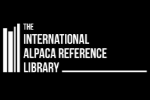Articles by Alpaca World Magazine:
A Letter from France.
Andy Spillane
The arrival of 2006 has had little effect on the weather here in South West France. It continues to swing from one violent extreme to the next, almost on a bi-weekly basis, one moment deep snow, then strong winds, sun and biting cold and the next, 110mm of rain in a day and severe flooding. The alpacas stoically endure it all and continue to thrive regardless of nature’s worst efforts, yet again demonstrating their natural hardiness and vigour.
Our birthing paddock is overlooked by both our kitchen and study windows. Whilst making our breakfast coffee a few days before Christmas, Nicky watched one of our females start labour. The temperature was minus two but with wind chill felt nearer minus seven or eight. The cria had barely touched the ground before Nicky had scooped it up and it was into the barn, drying off on the straw. We bring all our females up to this paddock when they are near to birthing. Being able to keep a close eye at this critical stage has helped ensure easy and trouble free births on numerous occasions. We also put the expectant mums in the barn nightly so they are used to feeding on their supplements in there. As a consequence they tend to follow us in with their cria after birth without stress.
As spring crawls closer we are preparing to host the International Alpaca & Lama Show for the second time. Again it will coincide with the Fete-Foire de la Latiere on the 29/30th April. The ancient country fair and market is believed to date back to the Gauls. This huge fair is held in the forest near St Aulaye and attracts many thousands of visitors from the southwest and beyond. Our show is a small affair when compared to the major shows in England but enthusiastically supported nevertheless. Last year saw alpaca entries outnumbering lamas for the first time. This year the show will be judged by Liz Barlow (alpacas) and Irving Pallister (lamas) from the UK.
Many of us in France, and the rest of mainland Europe, have been watching the attempts to reconcile and merge BCL and BAS with great interest. We seem to have at least two societies in most European countries, normally expending much wasted effort on individual petty rivalries. “ La plus ca change, la plus ca change rien”. Of grave concern on this side of the water is the subject of BAS registration for non UK domiciled animals.
Why should the BAS attitude to registration be of concern to the rest of Europe? What business is it of ours what the UK may decide to do with its registrations? Simply this, the UK is the largest supplier of alpaca to mainland Europe at this time, either directly or through its role as the major wholesale importer from South America, Australia and Canada. Consequently UK registration policy has a very real potential to affect us all.
Mainland Europe is UK’s biggest market for exporting alpacas, and it is set to grow dynamically over the next few years. A number of the bigger breeders in UK have expressed their concerns over the current situation. Many, I am sure, will feel this is not their problem because it will be seen as something that only affects the larger breeders. Sadly this is not the case, if markets are closed the potential slump in stock prices and values will affect all.
I wish BAS and BCL members every success in their efforts to unify and put the historic squabbles behind them. Hopefully the enlarged fully representative body will serve the camelid community well in the years to come bringing new initiatives and economies of scale.
Keith Scott, who deals with registration for the BAS, responds:
The BAS and BCA are engaged in a merger process to provide all the benefits of a single organisation and members of both organisations have already been informed that there will be provision for registration of members’ alpacas in Europe. The merger process in the UK is at an advanced stage and there is legitimate speculation over what may arise as a result. We hope that the new registry regulations of the merged alpaca Society will go some way to satisfying some, if not all, of the remaining concerns which are not already covered by existing provision.
Tweet



